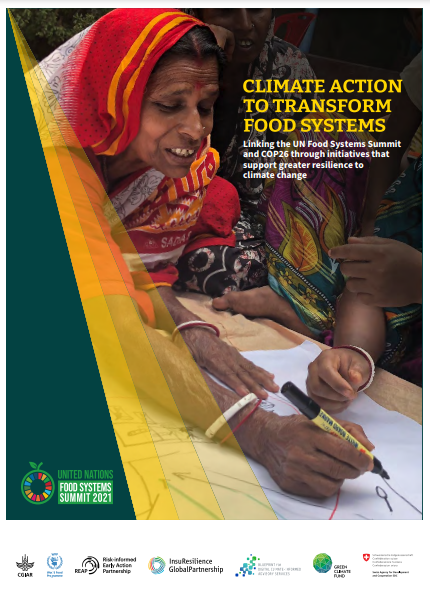Climate Action to transform food systems. Linking the UN Food Systems Summit and COP26 through initiatives that support greater resilience to climate change

ABSTRACT
The climate crisis is a major threat to our food systems, undermining decades of progress in providing more nutritious diets to a growing global population. But it’s these very food systems which contribute to the global climate emergency – producing as much as a third of all greenhouse gas emissions.
Two key events take place in 2021 – the United Nations Food Systems Summit (UNFSS) and the 26th session of the Conference of the Parties (COP26) to the United Nations Framework Convention on Climate Change (UNFCCC). Both events could produce mutually reinforcing commitments and action at the intersection of climate and food
challenges. Although these conferences are highly aligned in terms of their goals, they are not systematically feeding each other in a way that reinforces and amplifies their shared ambitions.
This paper looks at how food systems transformation is an essential aspect of climate action – and sets out how to align climate action with efforts to promote more sustainable food systems. The revision of Nationally Determined Contributions (NDC)s in preparation of COP26 offers a unique opportunity to set targets and initiatives that reduce the impact of unsustainable food systems on the global climate – and at the same time helps the agricultural and food sectors become more resilient to the impacts of climate change.